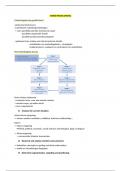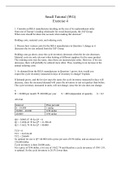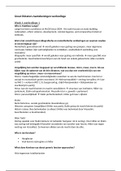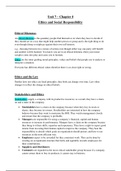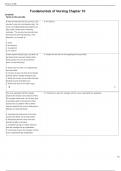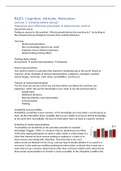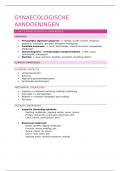THEATRE HISTORY
GREEK THEATRE (week 2)
Originated 5BC in Athens (Greece), honoring Dionysus
tragedy, comedy, satyr plays
Performed in open-air theatre: theatron
Before 5BC: ceremonies honoring Dionysus (winegod), developed from dithyrambic choruses
Dithyramb
Long himn, sung&danced by 50 men/boys
Similar to modern-day choral presentations: leader recited/sang improvised story, others
sang popular refrain
beginning of Greek dramas
Greek Theatre and Democracy
Athens = birthplace of “democracy”
Democracy for al “free citizens”: all male citizens ≠ slaves/non-Athenian origin
were given voice in politics
Women/foreigners/children/slaves: excluded from democratic state
Not allowed in theatre either, men played roles of women, wearing masks
democracy & theatre were born like twins
Theatre was testing place for direct democracy, discussing problems with audience
Tragedy
Plot inspired by Greek mythology/religion: group of gods, zeus the leader and his wife hera
Violence ≠ allowed on stage, character’s death had to be heard from offstage
Aeschylus
525-456BCE
The persians (472), Seven against Thebes (467)
He developed drama into form what isnt singing, dancing, storytelling
concidered founder of Greek drama // Western drama
Families and lofty themes, praised for superb lyric poetry + dramatic structure
Added 2nd actor: dialogue emerged
Sophocles
496-406BCE
Antigone, Oedipus Rex
Superb plot construction
Introduces characters/information skillfully + builds swiftly to climax
Aristotle made an analysis of tragedy using his play “Oedipus the king”
120 plays, 7 survived in complete form
Most celebrated playwright in dramatic competitions for 50 years
Atended 30times the religious festivals of the Dionysa, won 24, never lower than 2nd
Euripides
480-406BCE
,Medea, Bacchae
Most “modern” writer
sympathetic portrayal of women, realism in his plays, tragedy+melodrama+comedy,
skepticism against the gods&heroes: made them more human and fallible
Most tragic of poets
Focussed on the inner lives&motives of his characters
influenced Shakespeare, Racine, Strindberg,…
±95 plays, 18/19 survived
Chorus
12-15 men, sang and danced in unison, accompanied by aulette (soort fluit)
Chorodidaskalos: choral trainer, was employed for all festival productions
emphesizes importance, there wasnt even a theatre director
Chorus performed dramatic functions: provided background info, commented on actions,
interacted with characters, described offstage action
In tragedy: chorus=common people of the city-state
Great Dionysia Theater Festival
In athens
The end of march: when spring had arrived & visitors came
Proagon: reclame, little presentation about the coming plays, before opening of festival
1/2days: parades and sacrifices honoring dionysus
3days: 3tragedies + 1satyre (tetralogie) plays per playwright
Archon: government official, chose the attending plays 11 months before festival, judged
All 10 tribes of athens had a judge who voted, archon randomly
chose 5 to chose winner
Greek amphitheaters
Theatron: seating area for audience
Orchestra: playing area for actors, chorus performed
Skene: scen building, were gods arrived
Thymele: altar in center of the orchestra
Parados: entrance/exit
Important politicians sat here, in comedies they became
target of satire
Built into hillsides: natural amphitheatres
12000-15000 audience members
Stage sets
Paraskenion: side wing of scene buildings
Crane used for letting characters, located on side wing, fly
Mechane: machine
Ekkyklema: roll out, platform on weels to bring out characters from inside buildings
Deus ex machina: god from a machine: god solves the problem with divine powers
Mechane was used to suggest that entrance of actor playing god was from heaven
Costumes and masks
,Covered their entire head
Helped audience identify characters, allowed them to play multiple roles:
men played women
Costumes were painted on Greek vases
Tragic characters: ornate tunic & cloak
Kothornos: platform shoes for heroes/gods to indicate their high status
Comic costumes: based on everyday clothing but emphasizing physical features
Huge penis wraped around the waist
Aristotle and Poetics
Beginning of western theatrical theory
defined what tragedy is
6 elements: plot, character, thought, diction, spectacle, song
The crux of tragedy is mimesis (de kern van tragedie is nabootsing werkelijkheid)
“tragedy is the representation (mimesis) of an action that is serious, compete, and of a
certain magnitude…”
Mythos: plot: “soul of tragedy”
Most importent element: catharsis
Purification of emotions: eleos (pity), phobos (fear
Aristotelian tragedy
Man (rarely woman) of high social standing is protagonist => oedipus
Experiences downfall => killing father, marrying mother
Because of the miscalculation/tragic flaw in the perfect character
Hamartia: this miscalculation, considered as moral flax/intellectual error/judgement
Flaw not revealed but actions unfurl from flaw
Main character doesnt die but lives rest of his life with the consequences of the flaw
// shakespeare tragedy: hero must die
Aristotle’s 3 unities in tragedies
Unity of action: one main line of action, no subplots
Unity of place: 1 single location
Unity of time: few/no breaks in time, 3h=3h
contemporary tragedies DO NOT follow these rules
Antigone
Characters
Antigone
Symbol of feminine revolt & politival rebellion
Betrayes the law + expectation of women
Interpreted as good, loyal, not a feminist hero
Doesnt care about Haemon when being led to her death
Ismene
Well-behaved woman
Does not take any action, only prays
Represents the patriarchal system: disagreeing with men is a dangerous idea
Creon
, Protagonist of the play
Good man with flaws, wants to maintain law and order
Placing human law over religious duty
Haemon
C thinks he is not mature, ironic: was raised to be great king who listens to people
Tiresias
Blind prophet
Guard
Only character who isnt noble/royal, ordinary citizen
Language is more informal
Chorus
The elders of Thebes: well-respected old men
Many young men have died
Male-dominated patriarchal socieety
Can we trust the churus as moral compass?
Themes
Antigone is hero&traitor of the state
loyalty to the gods above loyalty to her uncle
She represents individual conscience, Creon represents state law
But who wins in the play? Antigone dies, creon suffers
Sophocles asks the question ‘is it ever right to break the law?’
not who is right/wrong but WHAT is right/wrong
Gender and femininity
C sentencing A ≠ justice, = misogyny
A doesnt want to be the future queen of Thebes: rebel
I is ideal woman at the time: subjective and submissive to men
Eurydice (H’s mother): her death is direct consequence of male brutality
1woman killed, 1kills herself, 1lives an oppressed life: critique of treatment of woman
performed only by men for male audience (lol)
Language and authority
Dialogue between 2 people: A&I, A&C, C&H, C&T, … => battle of words
Moral/political authority to convince eachother they’re right
C: statements of facts: provides instructions to others
T: poetic manner: many words maar weinig gezegd
A: full of emotions yet controlled by reason: affirmative and action-driven
ANCIENT GREEK COMEDY: ARISTOPHANES LYSISTRATA (week 3)
Historical background
413BCE: war between athens and sparta, athenian empire collapsed
Decline of democracy
Athens had democracy
Sparta had oligarchy (small group elites controlling state)
GREEK THEATRE (week 2)
Originated 5BC in Athens (Greece), honoring Dionysus
tragedy, comedy, satyr plays
Performed in open-air theatre: theatron
Before 5BC: ceremonies honoring Dionysus (winegod), developed from dithyrambic choruses
Dithyramb
Long himn, sung&danced by 50 men/boys
Similar to modern-day choral presentations: leader recited/sang improvised story, others
sang popular refrain
beginning of Greek dramas
Greek Theatre and Democracy
Athens = birthplace of “democracy”
Democracy for al “free citizens”: all male citizens ≠ slaves/non-Athenian origin
were given voice in politics
Women/foreigners/children/slaves: excluded from democratic state
Not allowed in theatre either, men played roles of women, wearing masks
democracy & theatre were born like twins
Theatre was testing place for direct democracy, discussing problems with audience
Tragedy
Plot inspired by Greek mythology/religion: group of gods, zeus the leader and his wife hera
Violence ≠ allowed on stage, character’s death had to be heard from offstage
Aeschylus
525-456BCE
The persians (472), Seven against Thebes (467)
He developed drama into form what isnt singing, dancing, storytelling
concidered founder of Greek drama // Western drama
Families and lofty themes, praised for superb lyric poetry + dramatic structure
Added 2nd actor: dialogue emerged
Sophocles
496-406BCE
Antigone, Oedipus Rex
Superb plot construction
Introduces characters/information skillfully + builds swiftly to climax
Aristotle made an analysis of tragedy using his play “Oedipus the king”
120 plays, 7 survived in complete form
Most celebrated playwright in dramatic competitions for 50 years
Atended 30times the religious festivals of the Dionysa, won 24, never lower than 2nd
Euripides
480-406BCE
,Medea, Bacchae
Most “modern” writer
sympathetic portrayal of women, realism in his plays, tragedy+melodrama+comedy,
skepticism against the gods&heroes: made them more human and fallible
Most tragic of poets
Focussed on the inner lives&motives of his characters
influenced Shakespeare, Racine, Strindberg,…
±95 plays, 18/19 survived
Chorus
12-15 men, sang and danced in unison, accompanied by aulette (soort fluit)
Chorodidaskalos: choral trainer, was employed for all festival productions
emphesizes importance, there wasnt even a theatre director
Chorus performed dramatic functions: provided background info, commented on actions,
interacted with characters, described offstage action
In tragedy: chorus=common people of the city-state
Great Dionysia Theater Festival
In athens
The end of march: when spring had arrived & visitors came
Proagon: reclame, little presentation about the coming plays, before opening of festival
1/2days: parades and sacrifices honoring dionysus
3days: 3tragedies + 1satyre (tetralogie) plays per playwright
Archon: government official, chose the attending plays 11 months before festival, judged
All 10 tribes of athens had a judge who voted, archon randomly
chose 5 to chose winner
Greek amphitheaters
Theatron: seating area for audience
Orchestra: playing area for actors, chorus performed
Skene: scen building, were gods arrived
Thymele: altar in center of the orchestra
Parados: entrance/exit
Important politicians sat here, in comedies they became
target of satire
Built into hillsides: natural amphitheatres
12000-15000 audience members
Stage sets
Paraskenion: side wing of scene buildings
Crane used for letting characters, located on side wing, fly
Mechane: machine
Ekkyklema: roll out, platform on weels to bring out characters from inside buildings
Deus ex machina: god from a machine: god solves the problem with divine powers
Mechane was used to suggest that entrance of actor playing god was from heaven
Costumes and masks
,Covered their entire head
Helped audience identify characters, allowed them to play multiple roles:
men played women
Costumes were painted on Greek vases
Tragic characters: ornate tunic & cloak
Kothornos: platform shoes for heroes/gods to indicate their high status
Comic costumes: based on everyday clothing but emphasizing physical features
Huge penis wraped around the waist
Aristotle and Poetics
Beginning of western theatrical theory
defined what tragedy is
6 elements: plot, character, thought, diction, spectacle, song
The crux of tragedy is mimesis (de kern van tragedie is nabootsing werkelijkheid)
“tragedy is the representation (mimesis) of an action that is serious, compete, and of a
certain magnitude…”
Mythos: plot: “soul of tragedy”
Most importent element: catharsis
Purification of emotions: eleos (pity), phobos (fear
Aristotelian tragedy
Man (rarely woman) of high social standing is protagonist => oedipus
Experiences downfall => killing father, marrying mother
Because of the miscalculation/tragic flaw in the perfect character
Hamartia: this miscalculation, considered as moral flax/intellectual error/judgement
Flaw not revealed but actions unfurl from flaw
Main character doesnt die but lives rest of his life with the consequences of the flaw
// shakespeare tragedy: hero must die
Aristotle’s 3 unities in tragedies
Unity of action: one main line of action, no subplots
Unity of place: 1 single location
Unity of time: few/no breaks in time, 3h=3h
contemporary tragedies DO NOT follow these rules
Antigone
Characters
Antigone
Symbol of feminine revolt & politival rebellion
Betrayes the law + expectation of women
Interpreted as good, loyal, not a feminist hero
Doesnt care about Haemon when being led to her death
Ismene
Well-behaved woman
Does not take any action, only prays
Represents the patriarchal system: disagreeing with men is a dangerous idea
Creon
, Protagonist of the play
Good man with flaws, wants to maintain law and order
Placing human law over religious duty
Haemon
C thinks he is not mature, ironic: was raised to be great king who listens to people
Tiresias
Blind prophet
Guard
Only character who isnt noble/royal, ordinary citizen
Language is more informal
Chorus
The elders of Thebes: well-respected old men
Many young men have died
Male-dominated patriarchal socieety
Can we trust the churus as moral compass?
Themes
Antigone is hero&traitor of the state
loyalty to the gods above loyalty to her uncle
She represents individual conscience, Creon represents state law
But who wins in the play? Antigone dies, creon suffers
Sophocles asks the question ‘is it ever right to break the law?’
not who is right/wrong but WHAT is right/wrong
Gender and femininity
C sentencing A ≠ justice, = misogyny
A doesnt want to be the future queen of Thebes: rebel
I is ideal woman at the time: subjective and submissive to men
Eurydice (H’s mother): her death is direct consequence of male brutality
1woman killed, 1kills herself, 1lives an oppressed life: critique of treatment of woman
performed only by men for male audience (lol)
Language and authority
Dialogue between 2 people: A&I, A&C, C&H, C&T, … => battle of words
Moral/political authority to convince eachother they’re right
C: statements of facts: provides instructions to others
T: poetic manner: many words maar weinig gezegd
A: full of emotions yet controlled by reason: affirmative and action-driven
ANCIENT GREEK COMEDY: ARISTOPHANES LYSISTRATA (week 3)
Historical background
413BCE: war between athens and sparta, athenian empire collapsed
Decline of democracy
Athens had democracy
Sparta had oligarchy (small group elites controlling state)



